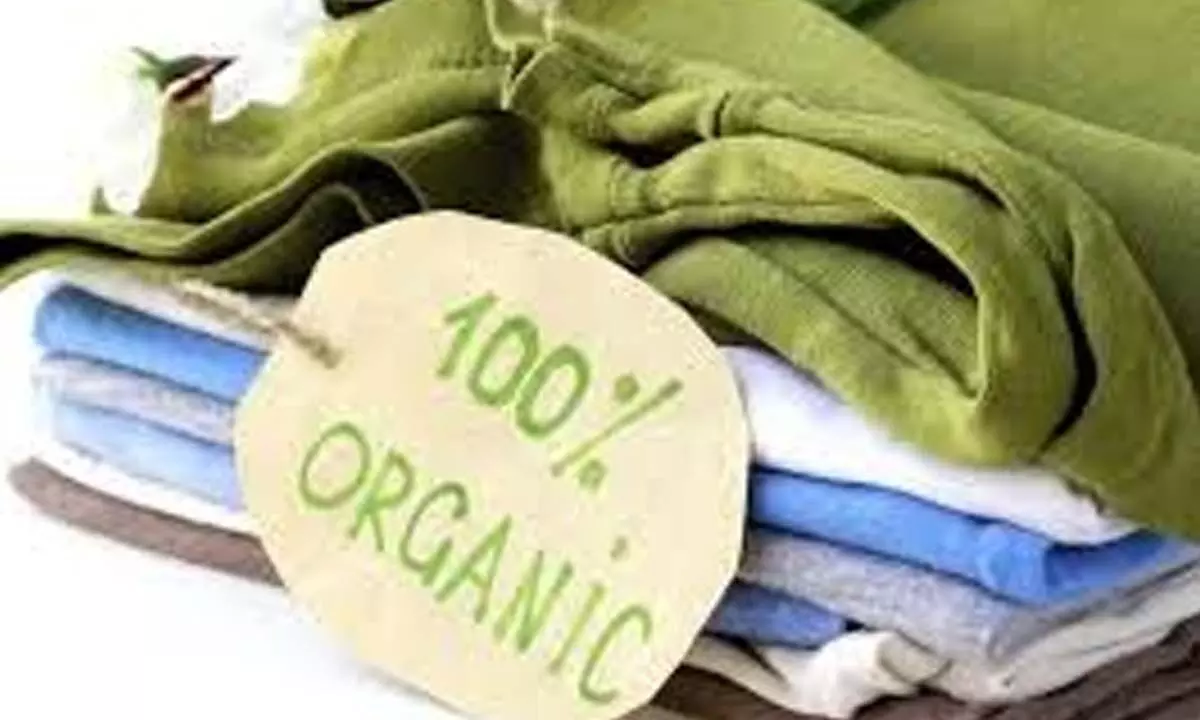Live
- HYDRAA's 2024 Report: 5800 Complaints Resolved, 12 Lakes Restored, and 200 Acres Reclaimed in Hyderabad
- Revolutionizing marketplace pricing with Machine Learning: The strategic innovation of Abhijeet Bajaj
- AI-powered transformation in manufacturing: Balachandar Ramalingam's vision for component management excellence
- Mangaluru Kambala 2024 Inaugurated, Showcases Buffalo Racing and More
- Drug Menace Grows in Mangaluru: ₹6.59 Crore Worth of Synthetic Drugs Seized in 2024- Police
- PM Modi meets World Chess Champion D. Gukesh, calls him 'India's pride'
- Jacqueline sets temperatures soaring
- PMF announces collaboration with Golden Star Ganesh
- ‘Marco’ to hit Telugu states on Jan 1st; trailer released
- ‘Godari Gattu’ sets fastest 50 million views record
Just In
Green produce, products seen gaining acceptance


Green produce, products seen gaining acceptance
The study points to the fact that green is the new black with the numbers indicating how Indian consumers are veering towards healthy and conscious buying. While eight out of 10 Indians have experienced a change in their buying behaviour focused on their health and well-being, six out of 10 respondents have claimed making purchase decisions based on their environmental impact
OneGreen, Asia's largest e-commerce marketplace for conscious, healthy, clean and sustainable products, in association with reputed market research agency Kadence International, recently conducted a unique survey to assess consumer opinion towards conscious, eco-friendly products and healthy living.
The study found that at least 68 per cent of Indians want to continue the healthy eating and living habits post-Covid.
There is currently an alarming dearth of data and insights around clean and green products in India and their availability. Existing research lacks in scientific rigour and aspects such as the sample size and information on the study cohort is also missing. This was one of the primary reasons why OneGreen undertook this extensive survey. The sample surveyed focused on respondents in the 18 to 50 years category comprising 80 per cent females and 20 per cent males. The purchase behaviour was found to be influenced by women since they are the primary decision makers and drive change in lifestyle in most Indian households.
The study points to the fact that green is the new black with the numbers indicating how Indian consumers are veering towards healthy and conscious buying. While eight out of 10 Indians have experienced a change in their buying behaviour focused on their health and well-being, six out of 10 respondents have claimed making purchase decisions based on their environmental impact. About 57 per cent consumers are willing to spend more on genuine green and healthy products even across the price-sensitive Tier 1 and Tier 2 cities. About 71 per cent said they aim to opt for a greener lifestyle this year.
The study also found that eight out of 10 respondents buy good quality products now – such as those that are organic and safe. And seven of 10 respondents who buy eco-friendly/sustainable products do so since they care for the environment.
The pandemic has boosted the new 'green living revolution' across metro and non-metro cities. People are not making impulsive purchases, but taking strategic decisions based on how a product will impact one's own and family health, followed by the environmental impact. These purchases are further enabled by easy access to such products online and their high quality.
Dedicated green ecommerce platforms like OneGreen are bringing about a change in this regard. Approximately, 90 per cent of the respondents were open to opt for dedicated marketplaces for buying clean and green products owing to the trust factor. One in four consumers have shifted to such market places.
Other interesting insights from the survey: 1 in 5 respondents buy clean and green products at least once a week. Relatively higher frequency among the older age group of 40 years and above; seven of 10 respondents are much more conscious towards their health post Covid. Female and middle-aged group are relatively more conscious; six of 10 are also more conscious towards the environment post-Covid. This is relatively higher in metros and middle-aged group; There is a greater focus towards superior quality and eco-friendly, sustainable products. This trend observed across age groups and city type; While 90 per cent consumers claimed to try to read labels while making purchases, it is the complicated terminology that confuses them about the actual ingredients used; eight out of 10 respondents mentioned they are influenced by social media platforms in terms of their buying decisions for clean, green products; There is a whopping 91 per cent traction in people opting for dedicated marketplaces for buying clean and green products owing to the trust factor. About 86 per cent and 84 per cent Indians were found to be buying green beauty and personal care products, groceries and pantry items, respectively; About 56 per cent bought kids and baby clothing, and 40 per cent shopped online for kids and baby toys as well and Pet products, a relatively newer category, also saw 32 per cent respondents making purchases online. OneGreen offers over 20,000 products from over 500 brands that are 100 per cent certified vegan, toxin-free, preservatives-free, gluten-free and eco-friendly. The platform leverages a unique proprietary tool called OneGreen Index, providing a three-step quality and credibility assessment for conscious products across categories. About 80 per cent of the company's audience is health and wellness conscious modern women, half of whom are mothers.

© 2024 Hyderabad Media House Limited/The Hans India. All rights reserved. Powered by hocalwire.com






